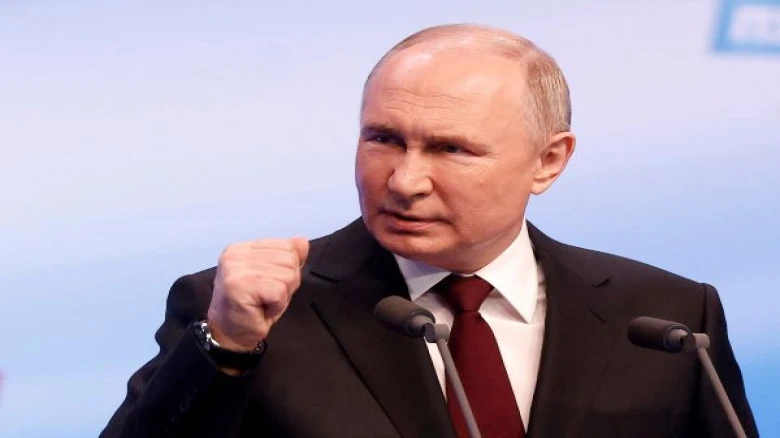Regional

Vladimir Putin rose to power with the help of the former Russian president and consolidated power by various means
Digital Desk: Despite coming from a military background and having no political affiliations in his career, Vladimir Putin rose to power and became the strongest ruler of Russia. He has seen five presidents in the United States and three in India (Prime Ministers) and China as President of the Russian Federation. Again, in 2024, the former intelligence officer became president with an overwhelming mandate, exceeding 87% of the vote in his favour.
Putin claimed that Russia's democracy was more open than many in the West after election officials announced that he had received more than 87% of the vote in the 2024 elections.
During his accession to power, the United States influenced Europeans and countries in the Middle East to establish democracy. Taking advantage of the financial crisis and deteriorating health of President Boris Yeltsin, the first president after the fall of the Soviet Union in the 1990s, the US was said to be busy pursuing Russian politics during that time.
However, after Vladimir Putin came to power, he sidelined US influence through his staunch beliefs and unpredictable personality, which persuaded US presidents, who came into contact with him. However, from Bill Clinton to Barack Obama, all hailed him at the beginning but later cited Putin as an enemy in various stances.
Vladimir Putin rose to power with the help of the former Russian president and consolidated power by various means during his first regime, subsequently dealing strongly with the second Russian-Chechen war in 2008.
Vladimir Putin's accession to power in Russia occurred during a period of political turbulence and economic instability. The political scenario in Russia was characterised by instability, economic hardship, and a desire for strong leadership. Putin capitalised on these conditions to assert his authority and reshape the political landscape in Russia.
Putin rose to prominence during the presidency of Boris Yeltsin, who served from 1991 to 1999. Yeltsin's presidency was marked by economic turmoil, widespread corruption, and political instability. Yeltsin's health was deteriorating, and there were concerns about his ability to govern effectively.
Russia experienced a severe financial crisis in 1998, characterised by a sharp devaluation of the ruble, debt default, and economic contraction. The crisis severely undermined public confidence in the government and led to social unrest.
The First Chechen War (1994–1996) and the subsequent Second Chechen War (1999–2009) were ongoing conflicts during Putin's rise to power. These conflicts contributed to a sense of insecurity and instability within Russia.
Political parties in Russia were fragmented, and there was a lack of strong opposition to the ruling elite. Corruption was rampant, and oligarchs significantly influenced politics and the economy. The Russian public was disillusioned with the Yeltsin government due to economic hardships, social inequality, and a perceived loss of national pride. There was a growing demand for stability and strong leadership.
Putin's Emergence
Putin emerged as a relatively unknown figure in Russian politics, initially appointed as Prime Minister by Yeltsin in August 1999. He quickly gained popularity by projecting an image of competence, decisiveness, and toughness, particularly in his handling of the Second Chechen War.
Putin's ascent to power was facilitated by his ability to capitalize on public dissatisfaction with the status quo and portray himself as a reformer. He implemented measures to centralise authority, strengthen the presidency, and crack down on dissent, laying the groundwork for his consolidation of power.
World leaders during Vladimir Putin's time as President (Source: World of Statistics):

- Atal Bihari Vajpayee
- Manmohan Singh
- Narendra Modi

- Jiang Zemin
- Hu Jintao
- Xi Jinping

- Bill Clinton
- George W. Bush
- Barack Obama
- Donald Trump
- Joe Biden

- Tony Blair
- Gordon Brown
- David Cameron
- Theresa May
- Boris Johnson
- Liz Truss
- Rishi Sunak

- Gerhard Schröder
- Angela Merkel
- Olaf Scholz

- Jacques Chirac
- Nicolas Sarkozy
- François Hollande
- Emmanuel Macron
Leave A Comment